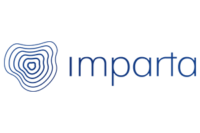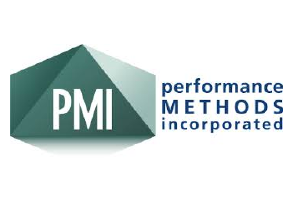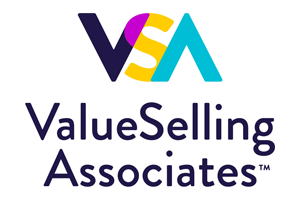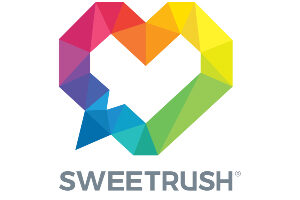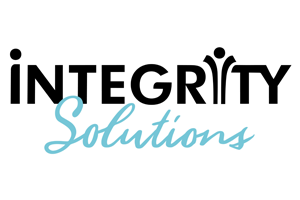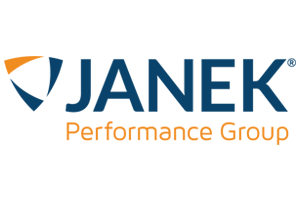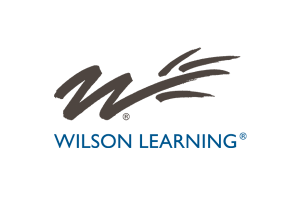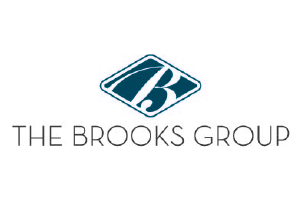As generative artificial intelligence (AI) continues transforming the way we work and learn, it’s also changing how we coach and train high-performing sales teams. From personalized feedback to real-time performance insights, AI-powered coaching tools are helping organizations scale their sales training efforts — without sacrificing quality or impact.
In this episode of The Business of Learning, we sat down with Julie Thomas, president and CEO of ValueSelling Associates, to explore how learning leaders can use AI to drive sales effectiveness and improve coaching outcomes.
Tune in now to learn:
- The top challenges organizations face when training sales teams and how AI can help.
- How AI-powered coaching tools deliver on-demand feedback and real-time performance data.
- Which sales skills AI can train most efficiently.
- …and more!
More Resources:
- [Resource] 2025 Top Sales Training and Enablement Companies
- [Article] Why AI Role-play Is the Future of Sales and Service Training
- [Wiki] Sales Training
The transcript for this episode follows:
[Ad]
As a learning leader, your organization looks to you to close skills gaps, meet compliance standards, prepare your business for the future and more, which is a lot of responsibilities, especially for a team of one. That’s why we created Tia, your AI-powered Training Industry assistant. Tia is upskilled on Training Industry’s vast library of resources, including research, job aids, course content and more. Tia is your guide for tackling any L&D task. By becoming a Training Industry member, you’ll gain access to Tia, in addition to becoming a part of the membership community where you can connect with like-minded L&D practitioners and experts. Driving the business of learning can be challenging — but remember, you don’t have to go it alone. Try Tia today for just $30 per month. Sign up at TrainingIndustry.com/Membership.
Sarah Gallo: Welcome to The Business of Learning, the learning leader’s podcast from Training Industry where we speak with industry experts and thought leaders on all things learning and development.
Sarah Gallo: Hi, and welcome back to The Business of Learning. I’m Sarah Gallo, a senior editor here at Training Industry.
Michelle Eggleston Schwartz : And I am Michelle Eggleston Schwartz, editor in chief. As AI continues to impact businesses across industries, its role in sales training and coaching is becoming increasingly hard to ignore. More organizations are exploring AI-powered coaching tools as a way to provide personalized, scalable support to their sales teams. So today we’re excited to discuss how AI can be used as a coach throughout the sales training process. To learn more, we’re speaking with Julie Thomas, president, and CEO of ValueSelling Associates. Julie, thanks for joining us today.
Julie Thomas: It’s a pleasure to be here this morning.
Sara Gallo: Yeah, so welcome Julie. We’re happy to have you on and to sort of kick things off, can you share what are some of those biggest challenges that organizations are facing right now when it comes to training and developing their sales teams?
Julie Thomas: You know it’s funny because there are times when the more things change the more they stay the same. And I think that that is one of … we’re seeing with the challenges with training, that persist and that is adoption. Training is fine, right? The training is fine. We’ve done a really good job to redesign training, to not bore participant, to [include] activities, [to be] participant centered and really leverage how to build those skills gaps. The biggest challenge most organizations face is what happens after the training. Good intentions aside, just like any new skill. Once I learn it, if I don’t use it, I will forget it and I will forget it pretty darn quickly. We see that as an opportunity to change how the skills gap is closed post training and really help build the habits and make those skills permanent and automatic. And AI is proving to be a really good solution in that area.
Michelle Eggleston Schwartz: Definitely that reinforcement piece is so critical because what doesn’t get used gets lost, and that’s just a waste of time and resources. As we all know.
Julie Thomas: Absolutely.
Michelle Eggleston Schwartz: Could you share a little bit more [about] how AI can specifically be used, like how AI-driven coaching tools can be used to help solve some of these challenges that you mentioned?
Julie Thomas: Well, sure. So there are a couple of things that we’re seeing that are really productive. First of all, video platforms such as we’re doing today. And call recordings and video calls really became the norm as a result of the 2020 pandemic. I mean, most of us did have some ability to do video conference calls, but cameras were off probably more than 50% of the time, and we weren’t always recording those. So it started, you know, AI kind of started with the first wave of conversational intelligence tools to give feedback on what’s happening in a real conversation. Is the rep talking too much? Are they asking good questions? What’s the sentiment of the buyer? Like is the buyer paying attention or have they lost the buyer with too much technical jargon? And we started getting what I call conversational insights using AI. That’s really evolved and it’s, it’s evolving very rapidly. What we’ve now moved from is just getting conversational insights, what happened in that call to the ability to give really specific coaching, and coaching to me means that I observe. I assess. I give recommendations for how to apply or improve, and then I reassess and re-observe. And it’s kind of a constant loop. If I’m on a sports team, I don’t just get coached one day, I get coached every day and it’s iterations and it’s reps and it’s practicing. AI now has become that mechanism to do it. Managers have long wanted to coach and they’re, they’re just not doing it. And it’s not because they don’t want to, they do. They are just way too busy, way too overwhelmed, and coaching takes time because it requires that observation and assessment stage. AI can do that like that and then give actionable feedback right out of the gate.
Sarah Gallo” Definitely. love that analogy too to sports teams. Because that training and coaching isn’t just [done in] one day, right? It’s sort of part of the profession. Probably most of the profession, actually. Kind of, I guess we know there’s a lot of potential here, so can you share, what are some of the biggest advantages of using AI as a sales coach?
Julie Thomas: Number one, I think the first real advantage of AI as a sales coach is time. If I am leveraging some sort of video recording, I can upload that transcript or upload that recording and get almost instantaneous feedback if my manager is going to go review that. If the call was an hour maybe they can get through it in double time, but that still takes 30 minutes for them to assess and then think through what would be the feedback, what is the highest opportunity to provide real developmental, constructive, positive feedback to the rep or the individual. So number one, it’s time. Number two, it’s not biased. So when I’m coaching my top performer. I am probably looking at things slightly differently than I am when I’m observing a poorer performer or somebody who’s brand new. And as much as we try to eliminate bias and be objective, beings are still human beings and there is some level of bias, unconscious bias. I’m not saying it’s inappropriate but there’s bias there. AI will eliminate the relationship bias or anything that comes as a result of us being humans. then number two, I think the rep can take that feedback and apply it, and AI can continually give feedback on that. Whereas a manager would then have to go and schedule the next time. So it’s back to that time savings. And the bias, the bias being eliminated is both maybe the rep being frustrated with the manager, or the manager not seeing all the good improvement that that rep might have done. I think those are, are really some of the key areas and what we see in our AI tool, which has evolved. Unbelievably, and I can give you the evolution of how we got here, but we see that as really key that the coach now will behave the same way as a personal coach would. If I’ve got all of the integrations in place, the coach will say, “Hey, Julie, I see you made a sales call this morning. Would you like me to schedule 20 minutes on your calendar tomorrow to review that and give you some feedback?” So the rep doesn’t have to do all of the actions. The coach will intercede and take over that and operate just like a human coach would. It’s really cool.
Michelle Eggleston Schwartz: Yeah, the, this time savings component for everyone involved, like is, is really amazing. Like, the potential there.
Julie Thomas: Yeah, you know, I mean if you think about it, let’s say we all know coaching is important. We all know that many managers, research tells us, managers think they’re coaching, yet reps say they never get coaching. So there’s a disconnect there. If many of the companies and clients that we have, the average span of control. For a first line sales manager is 10 people. So, if I assume I’m doing what I do as a manager and I have 10 direct reports and I want to spend one hour coaching each of them a month, I’m quickly running out of time to do everything else I do. the reality is coaching is one of the first things that come off the plate.Or what happens is, Hey, I know we have this call and we were going to do some coaching stuff, but I’m working this deal and I really need some help and strategize on that. And so coaching goes off the plate and we start focusing on deal management, opportunity management, you know, strategic advancement of opportunities. It’s not that that’s a bad thing, it’s that that takes priority over the coaching and the developmental activity doesn’t happen. With these AI coaching tools, that doesn’t have to be a one hour meeting, or if I’m a manager, I don’t have to now do 10 one-hour meetings to make sure I’m checking in this and working with the individual reps and helping them close their skill gap and because that’s hard. The other thing that’s reality is for many clients when they’re teaching skills, the managers are right in there with the training with them. Yet we expect the managers to gain mastery so much faster than the reps so they can coach. Well, I’m not sure that’s a fair expectation in even putting the managers those, especially the first line managers in the appropriate position to coach. So guess what? It doesn’t happen or it doesn’t happen consistently, or it doesn’t happen effectively.
Michelle Eggleston Schwartz: Yeah, and AI can definitely help standardize the process and create that consistency so that all employees are kind of receiving that same level of support and feedback that they need.
Julie Thomas: Absolutely. Absolutely and the AI can gain that level of mastery. I mean, the investment is upfront in AI to teach it and train it and, and do all the things that we do. But AI doesn’t have necessarily what we call the forgetting curve HI, or human intelligence, right? And so, once I train it, AI is stickier so I can provide it those rubrics, I can show it what good looks like. I can do all of that work, and it’s not nearly as time consuming as if I was trying to train humans how to do that.
Michelle Eggleston Schwartz: Definitely.
Julie Thomas: Now, don’t get me wrong, the human is not going away. The sales manager still has a very critical role to play. We’re just saying that AI coaching can contribute to closing the skills gap that we know impacts sales, performance, and results. And free up the manager to do the more strategic type of coaching, deal analysis that the human experience really is required.
Michelle Eggleston Schwartz: Definitely, yeah. AI is not going to be eliminating that need for human involvement, anytime soon if ever.
Julie Thomas: And people still, you know, people still want to be around people. I mean, I don’t want to be in a world where I just inter interface with robots all day. And matter of fact, I think, you know, I think the next wave will be, do we trust the robot, right? Like we know we don’t trust the bots, we don’t trust the bots on social media. We don’t trust the bots that are doing different, you know, that are spamming us and those types of things. So how do we humanize AI to make it trustworthy is, I think, you know, going to be the next challenge. And how do we really leverage what makes us uniquely human versus what makes AI uniquely positioned to solve some problems that humans can’t solve, or don’t prioritize solving.
Michelle Eggleston Schwartz: Definitely. Could you touch on some of the specific sales skills that AI can help train? So what of those key areas that AI can be effective?
Julie Thomas: Well, our focus is really on the engagement skills. How are you perceived in a conversation? Are you asking the right questions? Do you actively listen? Is your response when you’re in a conversation, appropriate? Are you telling relevant stories that bring your products and services to life? In specific situations or scenarios, are you handling objections? Many of what we’re doing with AI is on that engagement piece. We’re also using it to provide coaching on the written communication that surrounds, sales calls. And is that written communication reflective? the commitments, agreements, and next steps, et cetera, that are discussed in a meeting. So AI can again, look at a transcript and it can give me the first pass at that written feedback, and now I am just editing from that, maybe putting in my own flare or writing, et cetera, so it’s not so robotic. Maybe, cleaning up acronyms or cleaning up. Terminology and things like that. But AI can really help with those communication skills, which is really where our sweet spot is.
Sarah Gallo: Definitely. And Julie, that kind of flows into my next question for you, which is really sort of digging deeper into that feedback and also measurement piece. Since we know those are both key factors here. How can AI-driven coaching tools sort of provide that on-demand feedback to reps, and are there any other types of performance insights or metrics that it can sort of track and measure, too?
Julie Thomas: So we’re seeing it can do a couple of things. So yes, it can do that. It can give that performance feedback on specific skills. And that can happen in one of two ways right now, well, actually probably three ways. AI can present as an avatar and I could have a conversation with that avatar and it could give me feedback and I can respond to that. Or it can present as kind an interactive window. Say, “Hey Julie, here’s what we observed. Here’s the feedback. How do you think it went?” And I, now I’m typing and not speaking, but I’m interacting with that from that standpoint. And it can give me dashboards or rubrics of saying, “Hey, you did have two objections to handle in that call. Here’s the process. We’ve trained you to do it. On the first one you did, got a three out of five, and on the second one you got a four out of five.” It can give me dashboards and then, and, and kind of that rubric that says, here’s what you did really well, here’s what you didn’t do, and the next time you might want to, think about how you’re going to include that, you know, in how you handle those objections. So, but it also gives the recipient of that feedback. The ability to comment have context around it. So maybe it’s saying, I didn’t handle that objection right. You know, by the book, but maybe it’s … it’s the fourth time that’s come up and so my judgement was that I could short circuit a little bit because I’ve heard that before. We’ve discussed it before. I’m just reminding them of something that we had already discussed and they had agreed to. So it allows you to give that kind of context, if you will, around the feedback to describe why you made the choices you made when you were in the conversation. So it can be really this 360-degree view of how that happens. Now, if AI was my real coach, there might be, you know, was a human coach that wasn’t my manager, there might be things that I’m talking to that coach about that are private, like, how do I improve my leadership skills to be considered for the next promotion to management when an opportunity comes up. So not all of that coaching has to be direct performance related. It can truly become a coach for professional development that would say, ”Hey, here’s some things you might want to talk to your manager about in your next conversation.” Things to ask for that would give you the opportunity to demonstrate more leadership, more effective communication, a bigger picture, whatever that might be, to help you position yourself not only in your current role, but for however you want your career to progress.
[Ad]
At Training Industry, it’s our business to know what makes a great training organization. Our annual Top Training Companies lists are developed based on extensive research and analysis of training providers operating around the world. We examine the capabilities and expertise of hundreds of learning organizations.
With the mission of creating a more informed learning marketplace with categories focused on segments and learning services, leadership, learning tech and more. Our Top Training Companies lists are designed to help you find the right training partner to view our entire suite of Top Training Companies lists. Click the link in the show notes for this episode.
Michelle Eggleston Schwartz: Definitely I’d like to shift gears a little bit and dig in a little more, and talk a little bit more about the human element here. How can AI supplement human sales coaches and managers in delivering kind of a well-rounded sales training program? Can you kind of talk us through like how. How can you integrate AI into the sales training process? What does that look like?
Julie Thomas: So, we always talk about with our clients the manager’s role in driving adoption. And if you think of training that you do and we do methodology training, but we also do some skills training as well is typically part of a change management process, right? So training is a critical component of change management. What do I want you to do? Do you know how to do it? Can you do it and do you do it right? That’s really what we’re trying to go through when we do training and change management. The manager is the one who is working with the reps day in and day out. The manager also, in an ideal world, is role modeling all the skills themselves. So I think managers can also … not only is, is the AI coach going to take some things off their plate and relieve some of the pressure and stress that the manager’s feeling, it’s also going to make the manager that much better when they are with the rep and having developmental conversations to close skill gaps and improve performance because they’re going to get the feedback from the AI engine again, that is unbiased. And it’s a little more comprehensive. If I’m coaching you today, if I’m your manager, I can only coach on what I observe, and let’s say maybe and I get to do two calls together a week. When I was a sales manager, I had 12 reps. My goal was to spend a day with each rep in the field a month. On a good day, maybe we’d have four or five meetings. This was long before everything was virtual, right? We were getting in the car and driving around. Some days we’d have three or four meetings. Some days half those meetings would cancel. At the last minute, we’d have two meetings, and now we’re sitting in a, in a hotel lobby or a coffee shop or somewhere and talking and working in, in the gap between meetings. But if I don’t observe you, I can’t coach you. AI close solves that problem. I can now glean insight from any sales call meeting interaction that is somehow captured in the AI engine. And with recordings today that’s very, very easy to capture. So now as a manager, I can say, “Hey, it’s not me seeing one or two calls a month. I can see that for the last 10 calls you’ve done.” Here’s some of the trends, some of the patterns, now I can support the analysis AI and gain agreement with the rep how we’re going to remedy that and how we’re going to improve those, those various things. So I think it makes both so much better when they’re working in concert.
Sarah Gallo” Yeah. I love that. I feel like from the manager’s viewpoint, that would be so helpful to have that visibility. You know, especially if you are managing, 12 reps like you were.
Julie Thomas: Yeah. Sometimes when I had 12 reps supporting me and know, and don’t be confused. It’s not like we were 12 reps in an office. There were 12 reps spread across four states. There were days I was happy just to find them.
Sarah Gallo: Yeah.
Julie Thomas: Oh, great. Joe returned my call. And, you know, because this, this was a while ago. The technology wasn’t what it is today. So I think that the human and then AI partnership, for lack of better words, is what’s going to help us accelerate performance. It’s that partnership that’s so cool. AI doesn’t replace the human and the human will be much more productive with AI.
Sarah Gallo: Yeah, definitely. Well, I do know that a lot of our listeners are sort of in those beginning phases still. You know, there’s still sort of. Testing out the AI waters, so to speak. I want to make sure we’re leaving them with advice that as well. So I guess with that, what advice would you give to organizations who are still sort of beginning how to use ai, for AI powered coaching for their sales teams? Do you have any beginners tips?
Julie Thomas: Yeah, I think there’s a couple of things. You know, there’s a number of different ai, quote unquote coaching applications out there, and most of them started with some sort of AI-based role plays. That’s where we started, quite frankly, and that still can be a part of the coaching experience. You know, we’ve talked about [skill building]. Now how are you going to practice it in a low-stress environment, not practice for the first time in front of a client? So, there’s that AI role-play engine, but guess what? Sales reps still hate role-plays. So now you’re in a compliance game that everybody’s got to do two role-plays a month or a new role-play and we’re going to certify you and all that. And it becomes much more of a compliance game than a developmental game. ”Okay, I’ll do this to get people off my back.” Where when we flip that conversation and say, role-play is just a tool to be used in the coaching experience, it changes how people can think about what those role-plays are. So when we look at our solution, we really focus on three areas: There is the AI-based role-play. I can set up a persona. I can say I’m practicing calling on a VP of procurement in this industry, selling this stuff, and I can start to have a conversation and practice that. The second application, and this is something we hear from our clients all the time, is how do we better train our reps to understand the buyer? And we’ve had tremendous success our based persona generator. And that’s not exactly what it’s called, but that’s what it does where it says, “Hey, here’s 10 people in this role that are examples of who I want to call on in this industry, 10 CFOs in manufacturing organizations. And here’s other sources of information that I know they read or they listen to, or industry associations that they participate in.” I can put all that into an AI engine and build a real-world persona for the person I want to train on, to interact with. And now the rep can just have a conversation with them. What are your top five issues? What are, what are you thinking about one? And start to ask them and get buyer insight. And then the third is the real-world feedback on sales call execution and communication, those three things together create what we think is a very comprehensive solution and because role play is just a tool to help close the skill gap, feedback is another tool to help close the skill gap. And we know the faster we close the skill gap, the faster we’ll be able to accelerate performance and revenue.
Michelle Eggleston Schwartz: Definitely it’s that time to proficiency. Well, we’ve covered a lot of ground today. Before we wrap up, do you have any final takeaways that you’d like to leave our listeners with?
Julie Thomas: Everybody is doing something with AI. You know, the number one use case in an article I read, it was probably in your magazine a couple months ago, was, you know, it’s content creation, it’s using emails, it’s asking for a short, pithy, you know, clever statement.
For this, it’s generating subject lines for outreach, blog posts and that type of thing. AI is great for that content generation, and as it captures your voice. I think the second use case is much more [of a] management use case. We’re using AI for analytics and all of that stuff, and what’s the health of our pipeline and are the opportunities that we’re working on the right opportunities and is where, where’s the risk in the business. I think this third pillar of AI for sales is going to be this human performance improvement kind of trifecta between the rep, the human manager in the artificial, you know, AI-generated coach, and so playing with it really important. AI is not going away. It’s not going to replace you. For most of the clients that we have, buyers are not going to buy the stuff you sell from a robot. They want trust. They want to know the people behind the product. I don’t think that’s going away. No, no. Certain products. You know, I can buy a lot from Amazon that I don’t need product education on, right? And I can leverage the reviews. So certain things we might be, we buy differently, but the business-to-business world with the types of products and services that our clients sell, it’s not going away.
Sarah Gallo: Yeah, it’s not going away. So that, skills development here is so important and well with that, Julie, thank you so much for speaking with us on the podcast today. How can our listeners get in touch if they’d like to reach out?
Julie Thomas: Awesome. I’m not hard to find. So you can visit valueselling.com and if you go to our team, you’ll find information about me and my colleagues and, and how to gain access to us. I’m also on LinkedIn. Julie Thomas at ValueSelling Associates. Find me, connect with me. I’d love to hear from you and I don’t know what you’re, what you’re going to put in the show notes, but feel free to put my email in the show notes as well, which is just julie.thomas@valueselling.com.
Michelle Eggleston Schwartz: For more resources on this topic, check out the episode description or visit the show notes on our website at training industry.com/podcast. And don’t forget to rate and review us wherever you tune into the business of learning. Until next time.
